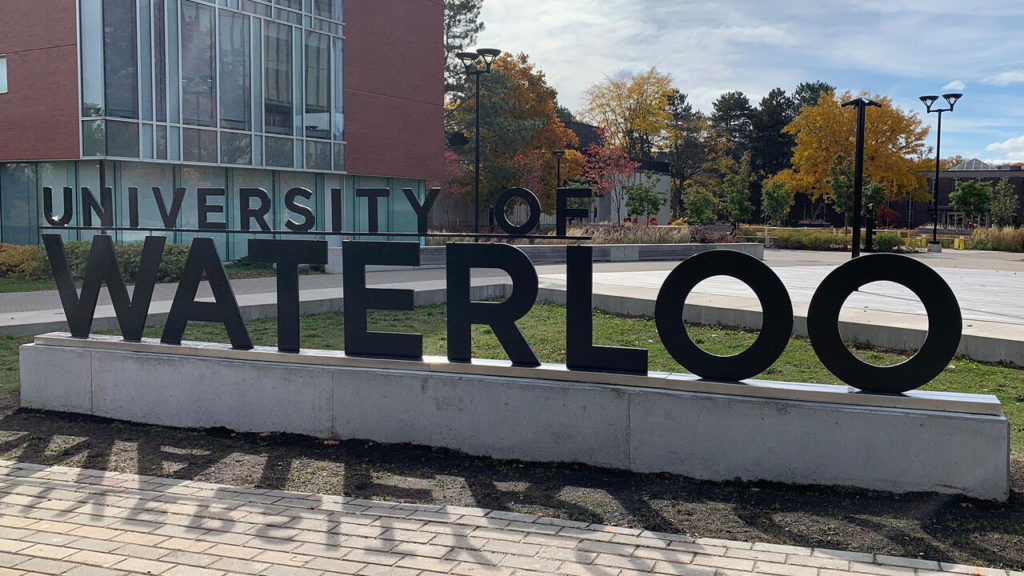
Let’s face it: University is not cheap! And whether you worked a part-time job during high school or not, you’ll probably need some extra cash to fund your four years (or more) of undergraduate education, not to mention you’ll need some more if you plan on attending graduate school. Luckily, the University of Waterloo has a ton of opportunities for you to earn some money to go toward your tuition or the whole other list of fees that comes with university- we’re talking rent, groceries, textbooks, and late night fast food runs before a final exam. The most important thing about financial aid is being vigilant-most times scholarships and bursaries are not served to you on a silver plate, you need to do some digging to find them.
1. OSAP AND GOVERNMENT AID
If you’re an Ontario student, you’ve probably heard of OSAP. The Ontario Student Assistance Program provides post-secondary students with loans, grants and bursaries to aid you in your education. If you’re not from Ontario, not to worry; each Canadian province has its own provincial funding system. It’s important to note that OSAP will typically not cover your entire education, which is why you need to have Plans B, C, and D.
2. WORK PROGRAMS
One of Waterloo’s perks is its co-op program, which allows you to graduate with up to two years of paid work experience, receiving an average of $14,700 per term! Many students use the money earned in internships to fund their education or repay their government loans. This is recommended since after a certain amount of time after graduation, your government loans will start to accumulate interest, and you don’t want your debt to continuously increase over time. But while co-op occurs when you’re off schooling, there are plenty of other university related work programs where you can get paid while studying. The University of Waterloo has multiple programs to suit your education plan:
- The Work Placement Program provides full-time students (both co-op and non-co-op) with full-time on-campus jobs.
- The Work-Study Program provides full-time students with part-time on-campus jobs.
- The International Work-Study Program provides full-time international undergraduate students with part-time on-campus jobs.
Campus jobs are not just a great way to earn money, but they also help you with time management, and force you to take breaks from studying! If you find the right one for you, they can also be kind of fun;) To learn more about the University of Waterloo’s work programs, click here.
3. AWARDS
The University of Waterloo’s Student Awards & Financial Aid Office (SAFA) is responsible for managing all of the institution’s scholarships and awards- and trust us, there are hundreds! If you are still in high school, your eye should be on the university’s entrance awards. These scholarships are for students getting ready to enroll into their first year at Waterloo in the fall and do not require an application. They are solely based on your grades coming out of high school. These scholarships include:
- The President’s Scholarship of Distinction consists of a $2,000 entrance scholarship and a $1,500 International Experience Award and/or $1,500 Research Award. To receive this award, you must have an admission average of 95% minimum. If you complete your first year with a minimum average of 80%, you can claim the $1,500 International Experience Award and/or $1,500 Research Award.
- The President’s Scholarship consists of a $2,000 entrance scholarship. To receive this award, you must have an admission average of between 90% and 94.9%.
- The Merit Scholarship consists of a $1000 entrance scholarship. To receive this award, you must have an admission average of between 85% and 89.9%.
- The International Student Entrance Scholarship consists of a $10,000 scholarship. This award is available to any international students entering their first year of a full-time undergraduate program at Waterloo. Your admission average must be a minimum of 90% and other elements are also taken into consideration, like the Admission Information Form (AIF). If you are enrolling in Mathematics and Computer Science, your results of the Euclid Mathematics Contest and/or Canadian Senior Mathematics Contest might also be taken into account. If you are enrolling in Accounting and Financial Management, your results of the Accounting and Financial Management Admissions Assignment might be taken into account.
The above scholarships are only a handful of the abundance of entrance scholarships provided by the University of Waterloo. To learn more, click here.
Once you’re an undergraduate student, the university does not forget about you! There are hundreds of undergraduate and graduate awards for all students. Depending on your faculty, program, year of study, academics, extracurricular achievement, and more, you will be eligible for many scholarships that you can apply to. SAFA has set up a database where students can select filters such as year of study, award type, selection process, affiliation, program, term, citizenship and keyword search. To access the database, click here.
4. BURSARIES
While many awards are based on your grades and community engagement, bursaries are usually dependent on your financial need. Bursaries do not need to be repaid, and are only awarded when exceptional or unexpected financial need is shown. An application is always required. The University of Waterloo has plenty of bursaries such as:
- Entrance bursaries are for students entering their first year of post-secondary studies in the fall. Applications are typically due early spring. For some programs, this may be before you even receive an acceptance offer!
- Full-time bursaries are for full-time students with financial need.
- Part-time bursaries are for part-time students with financial need. Both full-time and part-time bursaries can be applied to each term, excluding co-op.
To learn more about Waterloo’s bursaries, click here.
Learn more about the University of Waterloo by reading A brief history of the university next.
Empower your academic journey with scholarships and insights. Become a Member.